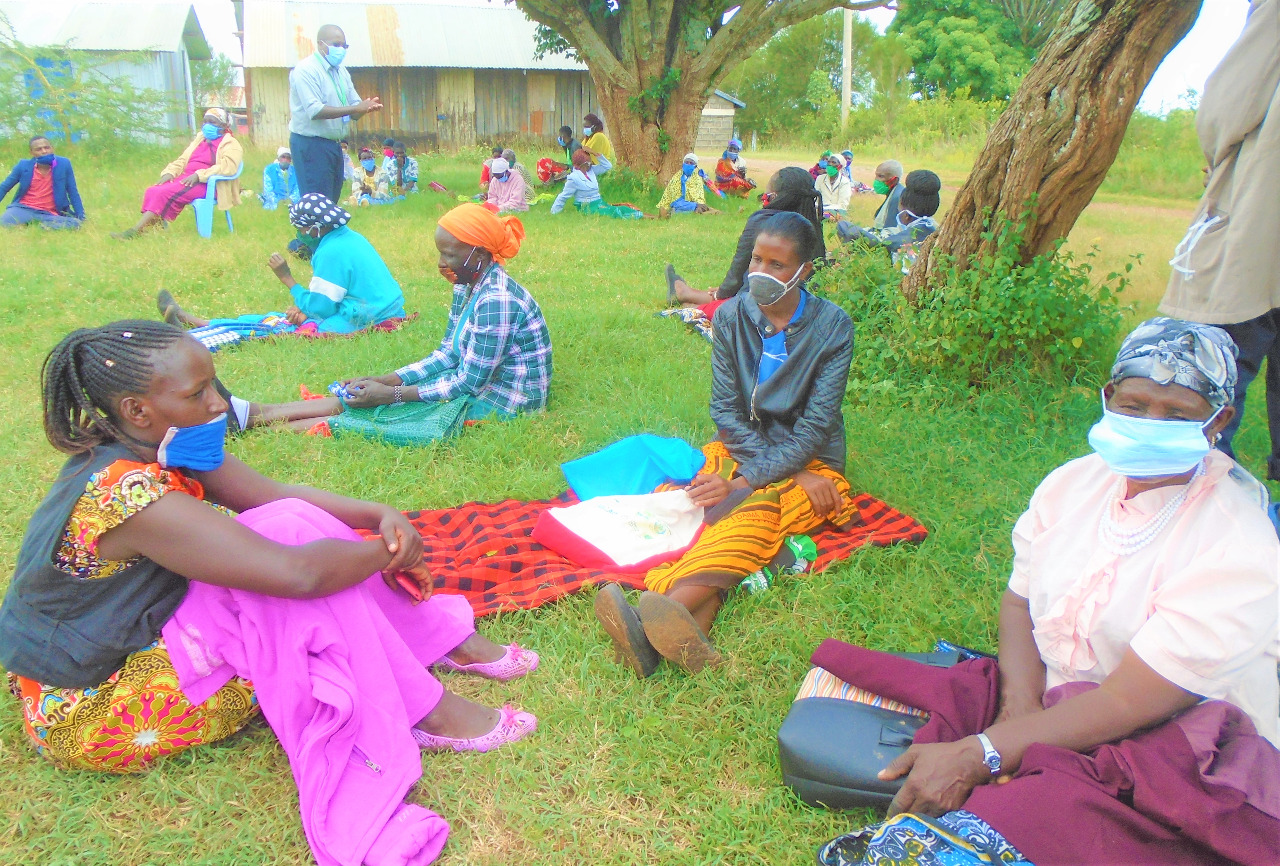425 vulnerable families benefited from 3,000 shillings’ monthly cash transfer from HFH Kenya for 6 months amidst dwindling incomes for most families in Kenya due to Covid-19.
Kenya confirmed her first case of Covid-19 in March 2020. To mitigate the spread of the virus, the government implemented several interventions including school closures, mandatory quarantines, countrywide night curfew, and partial lockdowns in the hotspot areas. Unfortunately, this meant reduced to-no incomes for a sizable number of Kenyans, this raising the vulnerability levels of most households in the country.
As part of our disaster response, Habitat for Humanity Kenya identified 160 needy families in Laikipia County and 265 in Homa Bay from our Vulnerable Group Housing database and introduced a monthly food grant to them. The food grant was given through a series of cash transfers with the objective of ensuring these families are cushioned from the economic impacts of Covid-19 and at the very least be able to put food on their table.
A Post Distribution Monitoring (PDM) analysis by HFH Kenya in Laikipia County confirmed that 100% of beneficiaries confirmed receipt of the 1st to the 4th tranche of Kshs 3,000 ($30) cash distribution respectively. The money was distributed through M-Pesa mobile money platform and disbursed through the Kenya Commercial Bank (KCB).
Money distributed to beneficiaries was sufficient to cover household food needs for 98% of the respondents’ households. The number of meals per day and proper diet increased for 35.2% of the households since the cash distribution started.
The report however revealed that 90% of the pastoralist community that is beneficiaries from Naibor and Kandutura location, used all the money and did not consider saving. The majority of the non-pastoralist community, on the other hand, that is beneficiaries from Mukima, Marura, Majengo, and Kariunga made small monthly savings from the Kshs 3,000 ($30) cash assistance received. They invested in poultry farming as an income-generating project.
Improved relationships in the cases where the female spouse was the recipient of the Cash were noted. This was largely because the burden on the husband to be the sole breadwinner was lifted. The result was fewer quarrels and tension among couples that were witnessed before when the husband could not provide.
While the cash transfer project was largely successful, findings from the report showed that the amount of money the beneficiaries were supported with is not enough to fully cover the household food needs due to other competing family needs. This was particularly due to high morbidity and the fact that the cash interventions are being implemented on beneficiaries who don’t have any better income option apart from HFH Kenya’s cash grant.
Food security is a major challenge for most people living in Laikipia due to the impact of Covid-19 and the harsh weather condition of the area. Increasing the cash transfer value to meet the food basket value and other alternative food assistance and/or livelihood support should be sought to address the need of the communities. On our part, Habitat Kenya will collaborate with other stakeholders to address the deteriorated food security situation in the region and increase the numbers reached by this cash intervention.
Lessons learned
- Sensitization of beneficiaries is necessary to ensure proper utilization of money issued so that they invest it into the pressing needs of the households.
- Providing the monthly cash entitlement to women of the family will maximize the use of the cash to the most pressing and essential needs of the households, in our case, food commodities.
- The savings component is essential for sustainability, the findings of this report noted that beneficiaries receiving cash support should be educated on small savings mechanisms and simple budgeting.

